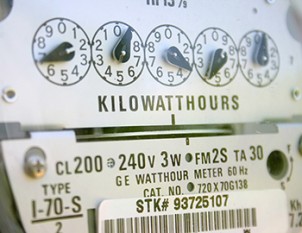
Cromwell, CT - Connecticut Better Business Bureau is warning consumers and businesses that utility-related imposter fraud usually heats-up as the weather gets colder.
Over the past several years, the usual scenario involves receiving a phone call from someone claiming to work for a utility, saying that you owe money, and that if you don't pay right away, your electricity or gas will be turned off.
The callers are criminals, and not affiliated with any utilities. One red flag is where the caller demands payment by an untraceable method such as direct wire transfer, pre-loaded credit card or gift cards.
In other cases, criminals may call or knock on your door in an attempt to get you to switch electricity wholesalers, and then put unauthorized charges on your invoices in a process called "cramming."
"Imposter schemes are increasingly used for a huge majority of schemes," according to Connecticut Better Business spokesman Howard Schwartz.
"These calls are just beginning to show up across the country in small pockets right now. Unfortunately, if history is an indicator, we can expect to see a significant uptick in criminal efforts as colder weather approaches. The key motivator in believing the scam artist is fear, and fear is a very potent tool for criminals."
Connecticut Better Business Bureau and Eversource offer tips to protect yourself from the utility scammers:
What Utilities Do:
They provide company identification - For example, Eversource representatives carry company-issued photo identification and will always provide it when asked. Examine it carefully. Their contractors also carry detailed paperwork about their project. If you have any doubts, call your utility immediately.
What Utilities Never do:
Demand immediate payment or threaten
you - Representatives never ask for instant payment in person or over the phone.
No solicitation - Utilities do not solicit business by knocking on doors or calling on behalf of third-party energy suppliers.
House visits are very rare - Exceptions might include accessing, maintaining, or ensuring the reliable and safe operation of equipment.
Beware of supplier solicitations - If someone calls or shows up at your door offering to change your electricity wholesaler, beware. Check your utility statements for details about your existing supplier or call the utility.
You can compare electricity rates at www.energizect.com.